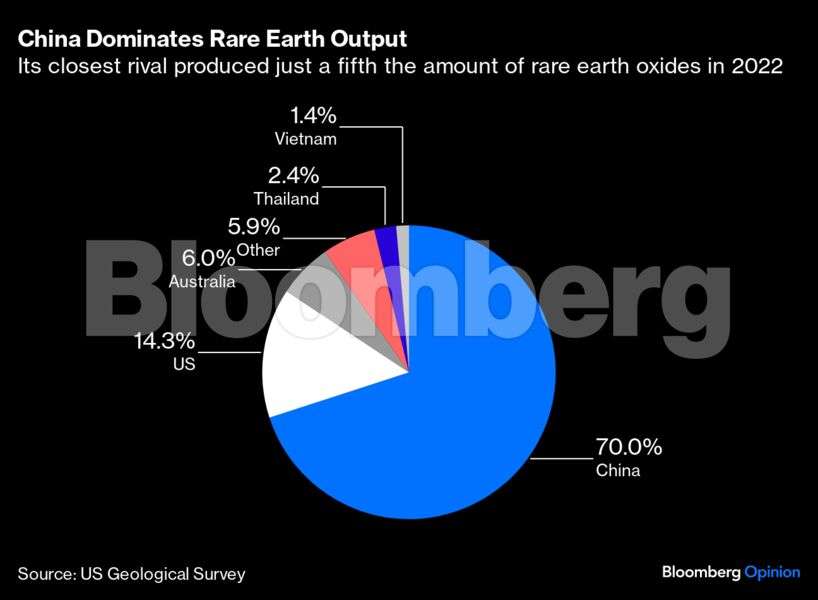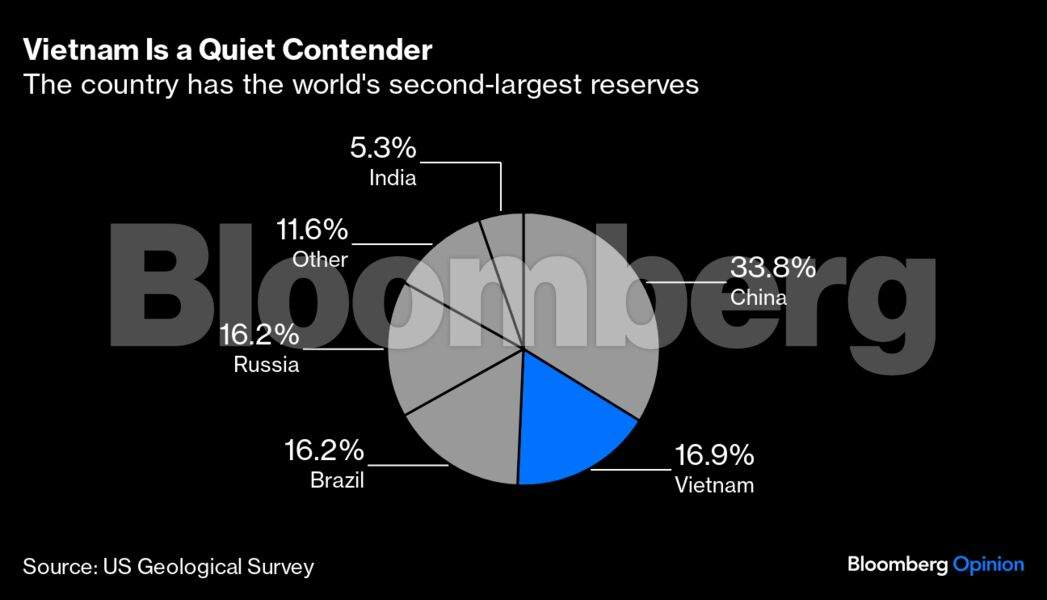Over the past decade, the country has built a beachhead in manufacturing, ranging from cars to electronics. Computers and accessories are now the largest export, surpassing textiles and footwear. The expansion of foreign assemblers like Foxconn Technology Group, GoerTek Inc. and Luxshare Precision Industry Co. mean that Apple Inc. products like Macs and AirPods are made locally. While that energy has spurred the birth of other businesses, some have stumbled. Electric-vehicle maker VinFast Auto Ltd., for example, last week posted full-year shipments that missed its own forecast by more than 20%.
Although Apple now has 25 supplier sites in Vietnam, that still pales in comparison to 151 for China and 41 in Taiwan. A key reason is the high concentration of component manufacturers in China. The transfer out of China into India, Vietnam, and Mexico has largely revolved around the final stage of the process when devices are put together like Lego. There’s been very little movement at the other end of the supply chain, where parts like chips, magnets, and diodes are produced.
Rare earth minerals are uncommon — though the moniker “rare” is debated — yet crucial to modern industry. Many have unique electrical and magnetic properties that make them useful in electronics, EVs, medical equipment and lasers.
Vietnam’s abundance of these ores is catching the attention of its government as well as foreign leaders. Its own hopes for the sector are bold. From just 400 tons of rare-earth-oxides produced in 2021, output shot up to 4,300 tons in 2022. That’s just 1.4% of global supply, and far behind the 210,000 tons from China, according to estimate by the US Geological Survey. In July, Deputy Prime Minister Tran Hong Ha approved plans to supercharge expansion, aiming to process as much as 62,500 tons of rare-earth minerals by 2030.During a trip to Vietnam in September, US President Joe Biden inked a deal with the Southeast Asian nation to open up to foreign investment in the rare-earth sector. Reducing reliance on China was the stated goal, as trade tensions between Beijing and Washington continue to simmer.
 Bloomberg
BloombergSo far, the Vietnamese government’s policies to boost capacity are a mix of carrot and stick. It offers tax incentives, a simplified licensing process and dedicated industrial zones. Yet it also imposes curbs on exports and has quotas on how much of the raw ore dug out of the ground must get processed locally, instead of sent abroad. That stipulation has already tripped up executives, with the chairman of one mine operator arrested in October and accused of tax evasion and illegally exporting raw minerals to China to avoid high refining costs.
Soon afterward, Perth-based Blackstone Minerals Ltd. affirmed plans to secure the rights to mine the Dong Pao concession in the northwest, despite its local partner being among those caught up in the scandal. “Vietnam has the potential to be a significant contributor to the global rare earth supply chain and Blackstone remains committed to helping Vietnam realise this ambition,” it said in an Australian Stock Exchange filing.
 Bloomberg
BloombergVietnam’s aggressive plans are bound to hit such speed bumps. Foreign mining companies, which have the technical skill and financial capital to extract and process the ore, will be key to making it happen. And overseas interest remains strong right through the value chain. Seoul signed a memorandum of understanding to set up a system for rare earths in order to offer South Korean companies in the automobile and electronics sectors stable access.
These deals are as crucial to the broader economy’s future as any agreements for extracting and processing minerals. South Korea’s Samsung Electro-Mechanics Co., Infineon Technologies AG of Germany, and Japan’s Renesas Electronics Corp. have operations in the country, chiefly to make semiconductors. More importantly, global magnet makers have been lured to Vietnam’s shores, too. Star Group Industrial Co. and Baotou INST Magnetic will soon join Shin-Etsu Chemical Co. with local factories.
This is the right direction. While it would be easy for policymakers to lean on cheap labor and simple assembly to provide thousands of jobs for blue-collar workers, it has a much better shot of building a robust future by tapping into its unique advantage underground. In luring the companies that turn rare earths into electronic components, it can build a knowledge-based economy that’s much more resilient to changes in labor costs.
Although current output is a tiny percentage of global supply, the nation is sitting on around 17% of known reserves, second only to China. It’ll take time and money to develop the mining and metallurgical skills needed to turn all that raw dirt into cash, but the rewards are there for the taking. Vietnam may never replace China as the global center of manufacturing, but it has a good shot at being the next-best alternative.









